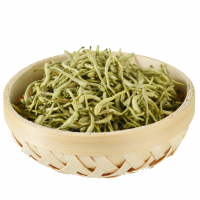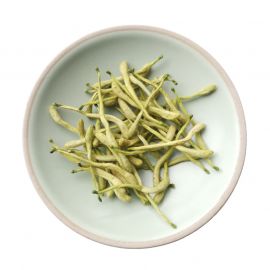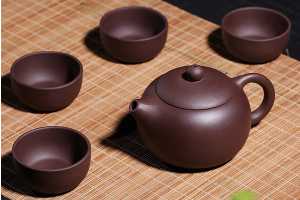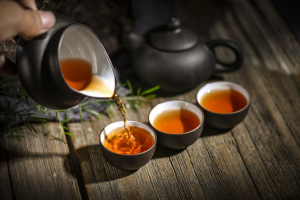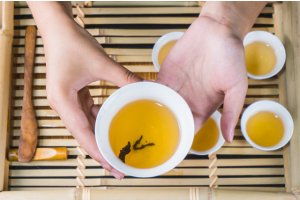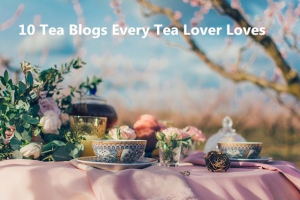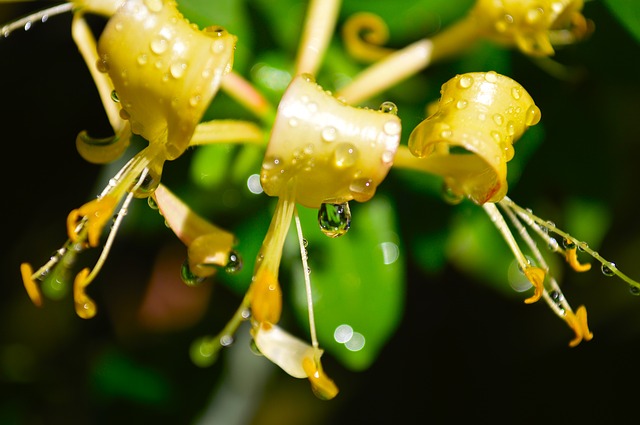
Honeysuckle or Lonicera in Chinese is called Jin Yin Hua (gold and silver flower). It is famous for both medicine and food that enjoys good fame in China. It with Medicinal taste with a slight hint of vanilla flavor. Blends well with Chrysanthemum flowers for added sweetness.
Honeysuckle tea belongs to the category of herbal tea.
Distribution of origin
The planting areas of Chinese honeysuckle are mainly concentrated in Shandong, Shaanxi, Henan, Hebei, Hubei, Jiangxi, and Guangdong. Henan Fengqiu, Shandong Pingyi, and Hebei Julu are the three major producing areas in China. Pingyi County of Shandong Province and Longhui County of Hunan Province were rated as “Hometown of Chinese Honeysuckle” by the State Forestry Administration.
Growing environment
Honeysuckle has strong adaptability and does not require high light, heat, and humidity conditions. As long as the annual average light hours are 1300-1800 hours and the average annual rainfall is about 1000 mm, it can grow well. Honeysuckle is not strict with soil requirements. Hillsides, terraces, mantles, dams, and thin hills can be cultivated. The soil with loose soil, fertile soil, and well-drained soil is most suitable. The optimum cultivation altitude is 600-1200 meters. Wild honeysuckle is mostly born in a relatively humid area, such as on both sides of the river, moist hillside shrubs, and sparse forests.
Brewing Guide
Pick the 4-6g honeysuckle tea into the cup, brew it with boiling water for 3-5 minutes then drink, every cup of tea can be repeated brew until diluted. Or it can be made into iced tea. It's a simple recipe, made similarly to traditional iced tea, but with Honeysuckle flowers instead.
Questions You May Have
What is honeysuckle tea good for?
Honeysuckle tea has the functions of heat-clearing and detoxifying, skincare and beauty, reducing blood pressure, lowering serum cholesterol, increasing coronary blood flow, preventing coronary heart disease and angina pectoris; inhibiting the formation of cerebral thrombosis; improving microcirculation and removing peroxidic fat deposits; Promotes metabolism, delays aging, and emollients.
1.Resistance to pathogenic microorganisms.
It has certain inhibitory effects on various pathogenic bacteria such as Staphylococcus aureus, hemolytic streptococcus, Escherichia coli, Shigella, Vibrio cholera, Salmonella Typhimurium, and Paratyphoid bacillus.
2.Sterilization effect.
It has antibacterial and bactericidal effects against pneumococcal, meningococcal, color bacteria, tuberculosis, Shigella dysenteriae, and Streptococcus mutans, and has inhibitory effects on influenza virus, orphan virus, herpes virus, and leptospira.
3.cooling blood to stop phlegm. For heat toxic dysentery, sputum pus and blood, wet temperature and throat, sore throat, and so on, there is detoxification to stop phlegm and blood stasis.
4.Anti-inflammatory and detoxifying effects. For swollen hemorrhoids, intestinal fistula and lung fistula have a strong dilated swelling, heat, and detoxification.
Honeysuckle is cold, not suitable for long-term drinking, only suitable for temporary drinking in the hot summer to prevent dysentery. Deficiency of cold constitution and menstrual period can not drink, spleen and stomach weakness should not be used. Honeysuckle has a cold taste and will affect the transportation of the spleen and stomach. It is more suitable for use on summer days.
What does honeysuckle tea taste like?
The fragrance is pure and meaningful, the soup is yellow-green and bright, and the taste is delicious and sweet. Honeysuckle Iced Tea is the perfect refreshing drink to cool off on a hot day. The sweet taste of childhood
Does honeysuckle tea have caffeine?
Honeysuckle flower tea does not have any caffeine in it. It is an herbal infusion and therefore doesn't have the caffeine that a black tea or a green tea would have.

